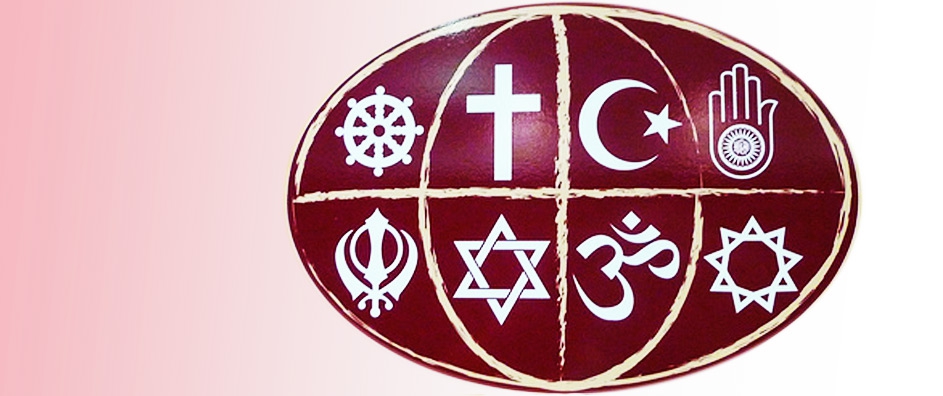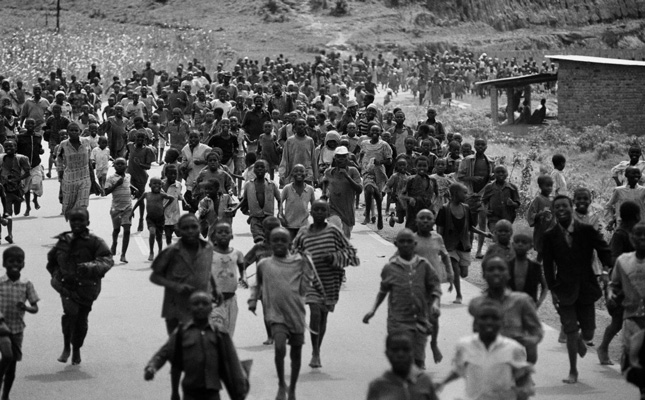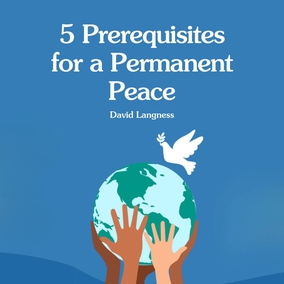The views expressed in our content reflect individual perspectives and do not represent the authoritative views of the Baha'i Faith.
Religious strife has divided the entire world.
We’ve reached a point in human affairs when the violent global conflicts between people who profess different Faiths threaten us all. Regardless of whether you practice a religion or not, this issue affects you, your family, your region and your country. The tensions in the world, the flashpoints we all fear, could flame up into a wider war at any moment. In fact, the most clear and present threat of war in the world now chiefly focuses on beliefs rather than ethnicity, nationality or political ideology.
As we’ve become more of a global community of nations, massive world wars have largely ceased. We still witness innumerable smaller wars of liberation, regional conflicts and proxy battles, but for the most part large nations haven’t engaged in wholesale open mass warfare in almost seventy years, since the end of World War II. The world’s massive stockpile of nuclear weapons, luckily, hasn’t been used since then, either.
Of course we’ve seen several ethnic conflicts break out during the last half-century—Bosnia and Rwanda, just to name two of the worst. However, those ethnic conflicts have remained localized and, by most estimates, have diminished rather than increased over time.
Just one area of warfare has seen significant expansion during the post WWII period: religious wars. Hindu vs. Muslim; Muslim vs. Christian; Buddhist vs. Hindu; Jewish vs. Muslim, Sunni vs. Shi’a—all of the tectonic plates of the world’s largest religions and their various sects keep scraping up against each other and causing violent, destructive earthquakes.
These Faith-based wars, which we often label terrorism or fundamentalism or religious extremism, have plagued the world for centuries, but have seen a lamentable resurgence in the 21st century.
Yes, many analysts and experts continue to insist that these wars really aren’t about religion. They say we fight those wars over secular concerns: economics, or class, or oil, or water, or land. The theologian William T. Cavanaugh maintains, in his book Myth of Religious Violence, that the term “religious war” is a largely “Western dichotomy”, and argues that all wars classed as “religious” have political or economic causes. He explains that the global West, with its typical separation of church and state, has no conceptual framework for a religious state, and therefore thinks of all wars that involve religious states as religious and not political. Cavanaugh has a point, and the factors his book covers are certainly important, but they tend to minimize the extreme hostility that still persists in many parts of the world between different belief systems—and the chaos that age-old hostility causes.
In most ways, the world’s religious authorities bear the biggest responsibility for this sad state of affairs. Because religious institutions have so actively encouraged violence and warfare in the past, as ways to forcibly spread their teachings, defeat their enemies or take and colonize new territory, their followers increasingly believe today that violence is not only justifiable but expedient, and not only expedient but somehow approved by God.
If you don’t believe it, just take a look at history. Judaism, Christianity, Islam, Hinduism, the Zoroastrians, many of the indigenous belief systems, Shinto, Confucianism, even the Buddhists—all have historically employed violence and warfare to advance their ends, and many still do. The Crusades, the Thirty Years War, the Middle East since forever, the so-called “muscular Christianity” of manifest destiny, the Sudanese Civil War, the brutal tactics of groups like ISIL—all of those bloody campaigns of destruction and dominance arise out of the convictions of “believers” sanctioned by their “religious” leaders who assure them God wants them to kill others.
This incredibly ugly and blasphemous assumption maligns everything true religion stands for and corrupts the entire concept of a peaceful and loving Creator. No legitimate religion teaches violence, murder and war. No founder, messenger or prophet of any true Faith ever advocated offensive warfare—instead, the original teachings of each great world Faith emphasize peace, love and kindness.
The world’s newest major religion, the Baha’i Faith, calls for corrective global action to end this clash of beliefs. How do the Baha’is tackle this enormous and seemingly intractable problem?
In this five-part series of articles, we’ll explore that critically important question, and take a look at five of the recommendations the Baha’i Faith makes to humanity to permanently quell its religious conflicts. Here’s number one:
1. Build inter-religious understanding, cooperation and fellowship.
First, Baha’is all over the world enthusiastically involve themselves in interreligious activities.
Participating with ecumenical efforts, building bridges to other faith groups, starting and staying active in interreligious councils, committees and conferences, the Baha’is try to exemplify Baha’u’llah’s call to:
Consort with the followers of all religions in a spirit of friendliness and fellowship. Whatsoever hath led the children of men to shun one another, and hath caused dissensions and divisions amongst them, hath, through the revelation of these words, been nullified and abolished… O people of Justice! Be as brilliant as the light, and as splendid as the fire that blazed in the Burning Bush. The brightness of the fire of your love will no doubt fuse and unify the contending peoples and kindreds of the earth, whilst the fierceness of the flame of enmity and hatred cannot but result in strife and ruin. – Baha’u’llah, Gleanings from the Writings of Baha’u’llah, p. 94.
Crossing boundaries and barriers, Baha’is take part in these groups to build a greater sense of harmony and understanding between religions and their believers. This passage from the Baha’i teachings explains why:
…we must endeavor to promulgate and practice the religion of God which has been founded by all the Prophets. And the religion of God is absolute love and unity. – Abdu’l-Baha, The Promulgation of Universal Peace, p. 32.
You May Also Like
Comments


















I can't thank you enough for your absolutely wonderful articles on much needed religious harmony which is the most essential aspect of our spiritual evolution.
Love,
Sridattadev.